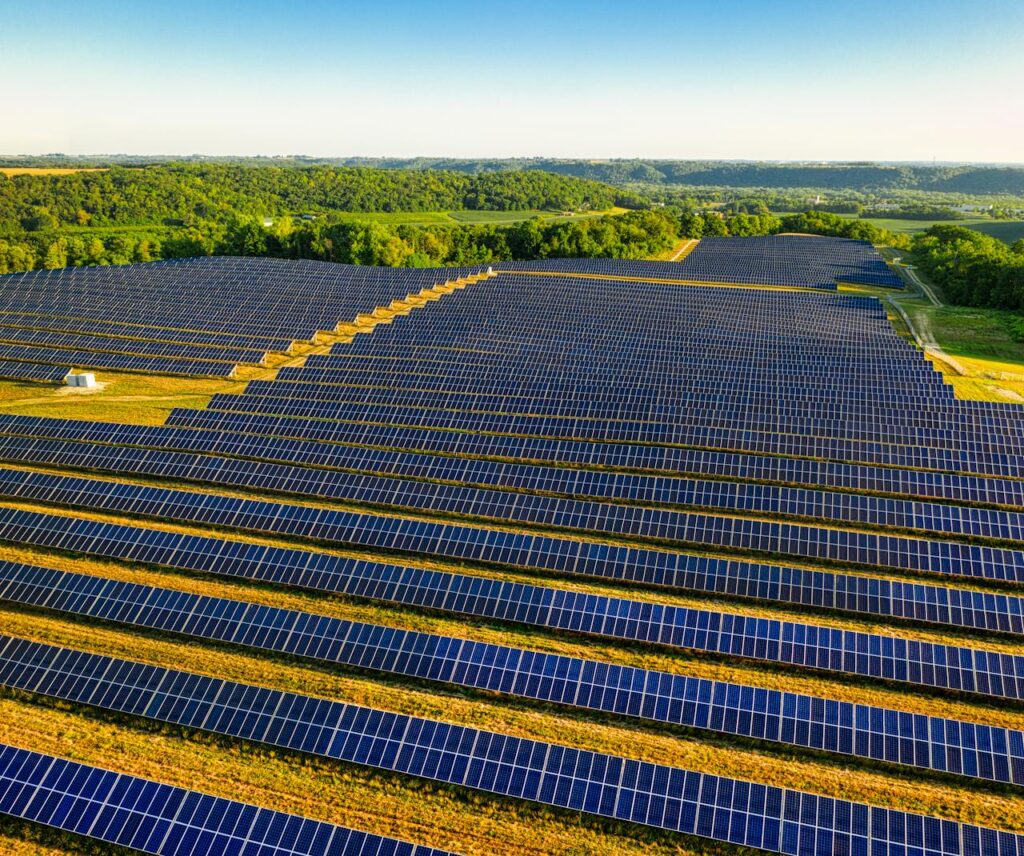Solar Farms Nationwide
There are currently around 1,000 solar farms in the UK, with a total capacity of around 13GW. In recent years, the UK has witnessed a remarkable increase in the number of solar farms, reflecting a broader commitment to renewable energy and sustainability.
Solar farms, also known as solar parks or photovoltaic power stations, are large-scale installations of solar panels designed to generate electricity for distribution on the power grid. This article explores the growth of solar farms in the UK, their impact on energy production, and their significance in the transition to a greener economy.
The Rise of Solar Farms
Expansion and Investment
The UK has seen significant investment in solar energy infrastructure, driven by both private sector initiatives and government policies. The introduction of subsidies and incentives has encouraged the development of large-scale solar projects.
These financial mechanisms have made solar power more economically viable, leading to a surge in the construction of solar farms across the country.
Technological Advancements
Advancements in solar technology have played a crucial role in the growth of solar farms. Improvements in the efficiency and affordability of solar panels have made it possible to generate more electricity from a smaller footprint.
Innovations in energy storage solutions have also enabled better integration of solar power into the national grid, ensuring a steady supply of electricity even when the sun is not shining.
Benefits of Solar Farms
Renewable Energy Generation
Solar farms contribute significantly to the UK’s renewable energy portfolio. By harnessing the power of the sun, these installations provide a clean and sustainable source of electricity.
Unlike fossil fuels, solar energy production does not emit greenhouse gases or other harmful pollutants, making it a key component in the fight against climate change.
Economic and Job Growth
The development of solar farms has created numerous economic opportunities. The construction, operation, and maintenance of these facilities have generated jobs and stimulated local economies.
Moreover, the renewable energy sector attracts substantial investment, further boosting economic growth.
Energy Security
Solar farms enhance the UK’s energy security by diversifying the energy mix and reducing dependence on imported fossil fuels. By generating electricity domestically, solar farms help to stabilize energy prices and reduce the vulnerability to global energy market fluctuations.
Challenges and Future Prospects
Land Use and Planning
One of the primary challenges in the expansion of solar farms is land use. Solar farms require significant tracts of land, which can sometimes conflict with agricultural use or local land conservation efforts. Careful planning and community engagement are essential to balance the benefits of solar energy with other land use priorities.
Grid Integration
Integrating a growing number of solar farms into the national grid poses technical challenges. The intermittent nature of solar power necessitates advanced grid management and energy storage solutions to ensure a reliable supply of electricity. Ongoing research and development in smart grid technologies and battery storage are addressing these challenges.
The Future Of Solar Farms
The growth of solar farms represents a pivotal shift towards a more sustainable and resilient energy system. These large-scale solar installations are not only reducing the country’s carbon footprint but also driving economic growth and enhancing energy security.
As technology continues to advance and public support for renewable energy strengthens, the future of solar farms in the UK looks bright. By investing in solar power, the UK is paving the way for a cleaner, greener future.

